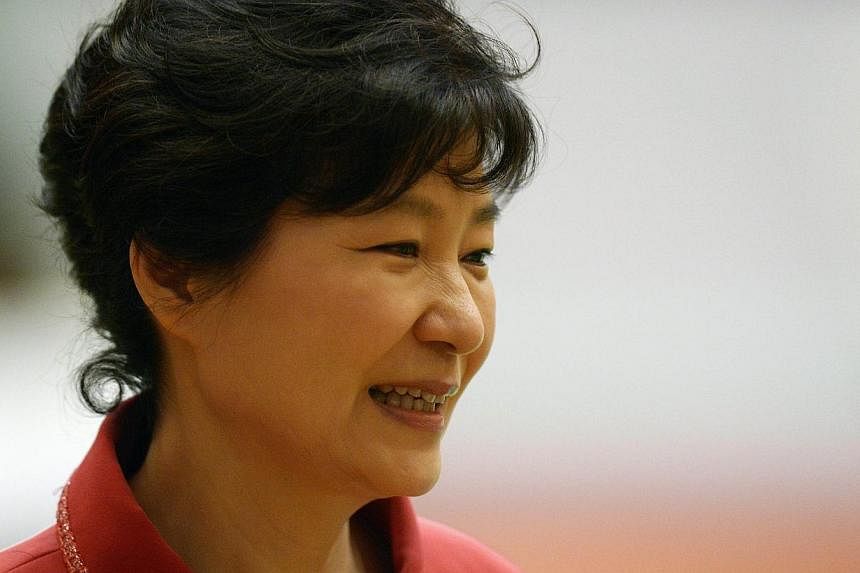SEOUL (KOREA HERALD/ASIA NEWS NETWORK) - South Korean President Park Geun Hye used to say that a leader should deliver messages in a classy manner. But when she talks about her regulatory reform drive, her choice of words surprises many, even journalists who write about the intentions behind her messages.
At a Cabinet meeting on Tuesday, the President said she would send all unnecessary regulations to "the guillotine".
Though it sounded awkward and creepy, Ms Park used the word four times at the meeting, urging officials to review the feasibility of current regulations. Deregulation is a key part of her three-year economic innovation plan announced early this year. She believes that many regulations are blocking efforts to create jobs and lure investment.
Her choice of words has at times been overly graphic. For instance, in February this year, Ms Park urged officials to tackle deregulation with the indefatigable spirit of a Jindo dog, noting that the indigenous Korean breed never lets go after it sinks its teeth into its quarry. She also branded unnecessary regulations "an enemy that must be crushed" and "a tumour that needs to be removed."
It is clear that she has been using such expressions to demonstrate her determination. But the President is missing an important point. She probably wanted to use strong words to push ministers at Cabinet meetings and let people know how deeply she cares about the issue. But the President's words have been misdirected.
It is not the ministers but low-level civil servants in municipalities or those in branch offices of state agencies who actually impose legal controls. They know better than anyone else which regulations are unnecessary and outdated.
At a televised meeting held at Cheong Wa Dae in August to gather opinions on regulations, Ms Park pressed a minister for an answer after a member of the public complained about an environmental regulation that she claimed hampered her business. The minister looked so flustered that he stammered. He was not even aware what the regulation was about.
Should the minister strive to remember all the regulations in detail in order to remove them like "tumours?" The President must know that the drastic deregulation she dreams of should begin at lower-level offices that are close to people's everyday lives. Ward offices and regional branches of agencies across the country handle many regulations that impose sanctions against businesses, even conglomerates.
Some believe that Ms Park's use of strong expressions is a kind of shock therapy. It seems quite effective when she wants to illustrate the urgency and appropriateness of her reform drive. But it remains uncertain whether her "shock methods" will actually have an effect on officials at a time when she is so eager to reduce their pension payouts.
Ms Park has been pushing to lower payouts and increase civil servants' contributions to the nation's public pension system. Despite the presidential office's hope to win parliamentary endorsement by the end of the year, the plan is facing fierce opposition from public servants nationwide.
Her efforts to eradicate unnecessary regulations warrant approval. Implementing deregulation, to borrow Ms Park's penchant for cliches, is a herculean task. Her predecessors, including former president Roh Moo Hyun, the paragon of progressive ideas and reform, ended their five-year terms with little to show for in regard to their deregulation efforts.
Ms Park may care very much about her regulatory reform drive to promote "the happiness of the Korean people". But some say she should remember that a good leader is one who moves people's hearts with gentle words and strong action, not one who scares them.

